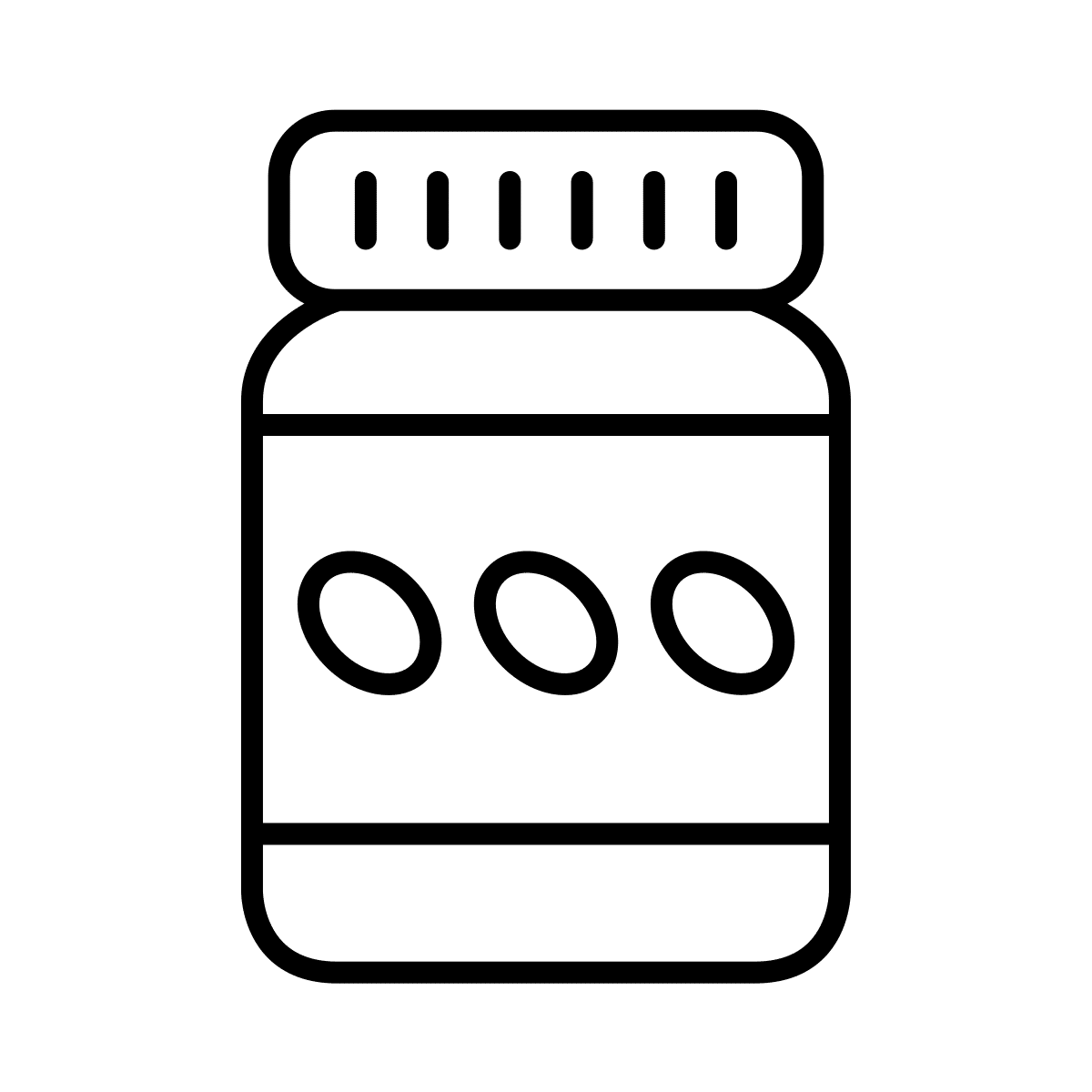Build-up your mobile development team, or build-up your mobile development capability?
The difference may seem subtle, but there’s a yawning gap between the two. For e-commerce agencies, becoming a mobile app reseller opens the door to tremendous opportunities – while sidestepping the time, cost, and management headaches that come with staffing a new division.
As an agency, you know change is in the air. Mobile has overtaken the web and it’s starting to dominate e-commerce. We spend up to 4.5 hours a day staring into palm-sized screens. We’re gripped by separation anxiety when our phones are out of sight. No one goes anywhere without their smartphone anymore.
So it’s not surprising that mobile has overtaken desktop to become the top channel in e-commerce. As much as 70 per cent of all web traffic comes from mobile, and its piece of the online shopping pie is set to hit 68 per cent by 2022.
That’s pushed web developers to get better at making websites mobile-friendly. But as good they are, mobile web stores just aren’t up to snuff. They can’t meet the demands of today’s mobile shoppers: lightning-fast selection, instant checkouts, and loads of interactive features.
Research shows that mobile app conversion beats desktop hands down. That’s why the demand for apps is on the rise. Clients have twigged to the m-commerce shift, and they’re looking for solutions.
But responding to client demand with your own mobile app division can be expensive — especially if it’s new territory. That’s why e-commerce agencies should consider creating white label apps on an open SaaS mobile app building platform.
By becoming a mobile app reseller, you can build fantastic e-commerce apps for clients without adding headcount.
In this blog post, we’ll talk through the benefits of white label app reseller programs, and why you should consider climbing onboard.
10 reasons your e-commerce agency should become a mobile app reseller
On the fence about adding reseller services to your agency offer? Let’s look at the benefits.
“As much as 70 per cent of all web traffic comes from mobile, and its piece of the online shopping pie is set to hit 68 per cent by 2022.”
1. Mobile commerce is growing fast
Mobile apps are wildly popular. It’s not exactly news that apps like Instagram, Airbnb, Uber and Minecraft make our lives easier and more enjoyable.
Social and gaming apps may dominate smartphone home screens, but e-commerce and retail apps are up there too — in 4th place overall.
More than 200 billion apps were downloaded last year, a 45% jump from 2016. In-app spending doubled from 2016 to $120 billion. Things will only get better. Growth projections have app revenue doubling again within the next four years.
With demand for e-commerce apps reaching an all-time high, it’s time to jump on the bandwagon — while there’s still room.


“Consumer spend on apps hit $120 billion, more than doubling since 2016.”
2. The barriers to entry are low
Addressing client demand for mobile shopping apps doesn’t have to upend your business model.
Creating a successful and on-brand app does need specialist experience and skill sets, but integrating those into your agency doesn’t have to be painful.
Becoming a mobile app reseller is a low-investment, high-return option. You gain access to an open SaaS platform and keep the power over app development in your hands. You can build a feature-rich e-commerce app in just a few weeks and customize it to client requirements.
What does it cost? You’ll pay a monthly fee for the app building services. Then you can charge your clients whatever price you see fit to hit your margins.
With everything pointing to massive demand for apps in the coming years, once you start onboarding clients, there’s enormous growth potential.
No matter how you set up your pricing structure, there will be plenty of flexibility for growth. You could sell apps as a standalone project, bundle them with existing services and raise the value of your packages. Or you could offer app development as an upsell.
Best of all, there’s no need to recruit and hire expensive developers in a hugely competitive job market.
3. Mobile apps deliver higher revenue growth
The trend is unmistakable; people want to buy more stuff on their smartphones. The only question mark hovers over the buying experience. In a nutshell, buying things on mobile responsive websites puts people off. Potential customers arrive at web stores ready to buy, only to see the impulse evaporate in frustration.
When it comes to shopping on handsets, on their own, mobile-responsive websites just aren’t up to the job. Research from Google says they’re slower than progressive web apps and native apps 9 times out of 10. This has a huge impact on conversion. The mobile web experience is a big improvement on the old days, but mobile sites still can’t take advantage of all the rich capabilities and native integrations today’s smartphones offer.
That’s why m-commerce apps have become the e-commerce standard.
Shopping app development rose on a hockey stick trajectory in 2015, and the number of m-commerce apps in app stores has been growing steadily ever since.
Abercrombie & Fitch saw the number of visits to its ecommerce app jump by 50% in 2020. Major retailers like Target are trying to strengthen their app offering and move more sales to mobile by adding functions like contactless in-store payment.
That’s because apps convert visitors to buyers— three times more than a mobile website alone. Become a mobile app reseller, and you’ll be driving better results for your clients.


“Apps convert visitors to buyers— three times more than a mobile website alone.”
4. You extend your agency’s capabilities quickly
With e-commerce apps in such high demand, any delay or wobble could send your clients looking elsewhere.
Becoming a mobile app reseller strengthens your portfolio of services quickly. Your agency becomes a one-stop-shop delivering everything clients are looking for.
That drives loyalty, keeps clients from being wooed by competitors, and demonstrates that you’re moving with the times.
5. You set the price
Under a mobile app reseller agreement, you set the price and charge for whatever volume of hours you see fit. As a white label reseller, you can compete on price to drive new revenues quickly, or raise the price and focus on premium, high-margin engagements.
Because after the build, revenue keeps recurring. The monthly plan fee can be passed on to clients who benefit from ongoing marketing support and automatic patches and updates.
6. It’s easy, and it works
Any business entering a new market with a new solution faces a shedload of risks. But Jmango360’s SaaS mobile app building platform uses proven technology. It’s been used to launch more than 1,200 mobile retail apps.
Of course, that means just about anyone can become a mobile app reseller — but as an agency, you have a clear advantage. You have credibility as a provider, and your business structure is already set up. You just have to add the service rather than build a new division from the ground up.
If you have more than one client in the same sector, there’s bound to be crossover in their requirements. On the backend, you might be able to sell essentially the same app more than once.
JMango360’s mobile app reseller program makes it just that easy. You either build the app yourself — or, if it makes sense, hand the lead to us and we’ll create it for you. You’ll still get a percentage of the revenue.
If you build an app yourself, the Jmango360 platform integrates with the e-commerce backend of your clients. With a simple but powerful plugin, all the content and settings are synced to the app, including any changes you make later.
Design is handled with an intuitive drag & drop interface. Just add logos and adjust colour schemes, typography, and other brand elements based on the client’s brief.
M-commerce apps from JMango come with standard out-of-the-box features based on years of shopping app experience, all included in the monthly subscription price.
For most brands, those standard options are more than enough. For bigger brands, further customization is entirely do-able. You can add bespoke new features and integrations tailored to your clients’ wishes. That’s why JMango360’s mobile app reseller program is perfectly designed for agencies that serve e-commerce brands small and large.
7. Measuring success is simple
When you’re starting a new venture, it takes time to see if your gamble is going to pay off. As a mobile app reseller, your KPIs are easy to track.
If you’re building an e-commerce app for a small or medium-sized business, the success metrics might be as simple as downloads, conversions, and cart abandonment rates. It takes the guesswork out of measurement and reporting. You’ll have real, transparent numbers like gross revenue increase or user engagement to tell you if the app is working or not.
8. You can build native apps and PWAs
Native apps aren’t the only option you can offer as a mobile app reseller. Progressive Web Apps (PWAs) use the advanced capabilities of modern web browsers to deliver a shopping experience that is more like a native app. They are deployed to servers but accessible via URLs and indexed by search engines.
PWAs act and feel like a native app, but without the barrier of having to download and install. They work on all devices, load quickly, and have lower data requirements.
Big brands like Walmart are using PWA’s to increase conversion and revenue. Tech analysts Gartner say they’re on track to displace 50 per cent of responsive this year alone. Creating a successful and on-brand PWA still requires specialist tools. JMangos white label app building platform makes adding native apps and PWAs to your agency toolkit easy.
9. Mobile commerce isn’t the future anymore. It’s now.
Mobile commerce is the heartbeat of the online shopping journey. Remember: As much as 70 per cent of all web traffic now comes from smartphones, and the m-commerce bite of the e-commerce apple will hit 68 per cent in the next two years.
Brands like Zara and Sephora are using mobile apps to win over their target markets, beat shopping cart abandonment and strengthen the bonds of loyalty. But success doesn’t depend on global brand recognition and big budgets.
The same tactics and technologies are accessible to almost any business selling online. And the simpler the approach, the better. Long and complicated mobile checkout processes cause 70 per cent of mobile customers to abandon their shopping cart during checkout. Having a mobile app in the mix can stop that from happening.
The influence of factors like data storage, unlimited data plans, ease of use and consumer confidence with data protection are translating into readiness to accept mobile devices as mechanisms to purchase products. Apps leverage those factors best and are more likely to turn visitors into buyers.
But again, don’t assume you need to over-engineer apps to make customers happy.
Andrew Lipsman, a lead analyst at eMarketer, recently said retailers don’t need to over-engineer their shopping apps. ‘The maintenance and management of cutting-edge apps can be time-consuming and tedious,’ he said, adding that ‘simplifying the basics and focusing on converting the shopper to a purchaser should be the goal’.
10. It’s your duty (sort of)
On the high street or online, everyone who sells products to customers has a duty to make shopping easier. “The customer is always right’ has become ‘where the customer leads; retailers must follow.’
With so many distractions out there, it’s never been more challenging for brands to win attention and keep it. Whether the goldfish myth is true or not, one thing is for sure: our mobile addiction combined with such a wide array of options has made online shopping on every device a volatile and sometimes bewildering experience.
Businesses have to respect end-user preferences and adapt their offerings to meet them – or risk losing them to competitors. The burden of simplifying the customer journey should fall on businesses and their UX designers, not on the end consumer.
Too many businesses still expect customers to come to them and adjust their expectations accordingly. M-commerce’s winners will be the businesses that ‘get’ its the other way ‘round, and that frictionless UX is the only path forward.
As an agency, you need to help clients earn and keep the loyalty of their end customers by offering a mobile shopping journey centred on personal preferences and expectations. That’s how you turn seconds of engagement into minutes, minutes into transactions, and transactions into lasting relationships.
The Ubers, Netflixes, and Amazons of this world have set the new standard in terms of customer experience. They’ve elevated expectations. Now it’s your turn to help clients make consumers’ lives easier.
Become a mobile app reseller with JMango360
At JMango360, we’ve built an Open SaaS solution that lets you outsource app development while keeping control of the process.
We want to make it easier for you to protect and grow your current relationships. If your agency needs to extend its m-commerce offer, our app-building platform can make you a one-stop-shop.
Are you thinking about becoming a mobile app reseller? Why not work with an app platform provider who will be there to help you through each step of the journey, makes both native apps and PWAs possible and is trusted by e-commerce brands all over the world — big and small.
If you’re building e-commerce apps on your own and run into a problem or get stuck, it’s nice to know that a customer support representative is on-hand and ready to help you out.
How our white label app reseller platform works
At JMango360, we live and breathe mobile apps. For more than a decade, we’ve been building best-in-class m-commerce apps that boost conversion and strengthen loyalty for all types of retail brands: B2B and B2C, grocery apps, fashion apps, cosmetics, and more.
- Connects seamlessly to all major commerce platforms: Magento, BigCommerce, Prestashop, Lightspeed & more.
- Designing apps is easy with our drag & drop tool & open code leaves room for custom design settings.
Comes with powerful m-commerce features straight out-of-the-box, with room to customize.
- App onboarding and app marketing support is included in the price.
Create apps on our white label app builder, fine-tune install app marketing strategies, set-up and execute app marketing campaigns, and improve App Store Optimization. Get in touch if you’d like to explore partnering opportunities or hear more about our mobile app reseller program.







